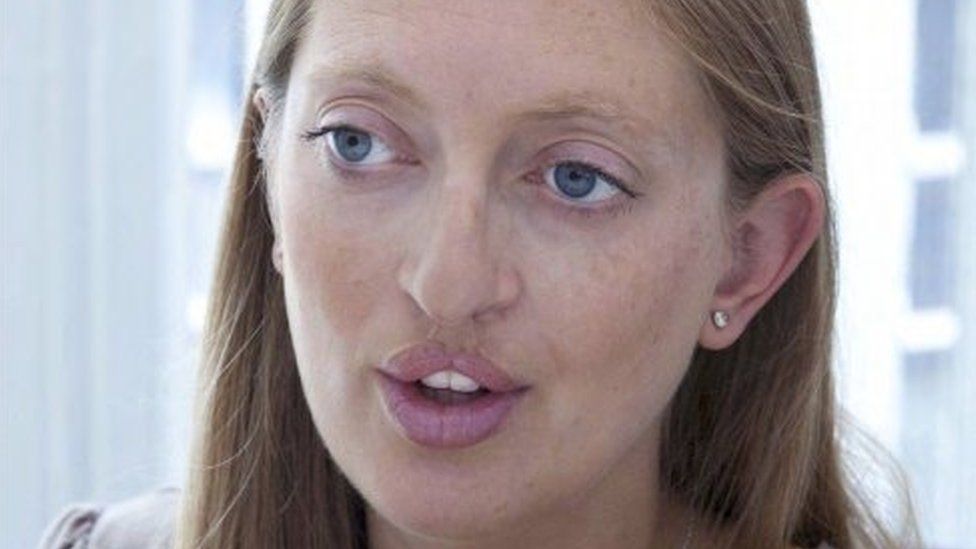Antiques Roadshow expert died after psychotic episode, inquest hears
- Published

An Antiques Roadshow expert who died after suffering suspected post-partum psychosis had to be restrained by five police and ambulance personnel, an inquest has heard.
Alice Gibson-Watt fought like a "tigress" as she was taken to hospital, her mother Miranda Phillimore said.
The 34-year-old gave birth to her first child Chiara in October 2012, four weeks earlier.
The inquest will look at how she was restrained and if it injured her.
Mrs Gibson-Watt, a jewellery specialist for Sotheby's, died on 20 November after suffering a cardiac arrest and an injury to her liver.
On Wednesday, the jury heard from police officers who went to Mrs Gibson-Watt's home in Fulham, west London, in response to a 999 call from her husband, Anthony Gibson-Watt, in November 2012.
The officers gave similar accounts that Mrs Gibson-Watt was screaming, swearing, violent, and kept saying her baby was dead.
They said they did not see any use of restraint that may have injured Mrs Gibson-Watt.
'Tragic'
Officers held her shoulders, feet, ankles, knees and her hands. She was also strapped down when she was taken from the house just after midnight on 14 November, the jury heard.
PC Andrea Cope said five years on she still remembered the incident, as it was "the most tragic thing I've ever had to deal with at work".
The inquest heard that the restraint continued on the journey to Chelsea and Westminster Hospital and on her arrival.
Dr Miriam Barrett, consultant psychiatrist, said Mrs Gibson-Watt appeared rational when she was assessed, but she was suffering "delusions" and believed she could communicate telepathically with her baby.
Michael Mylonas QC, representing Mrs Gibson-Watt's family, asked Dr Barrett whether she felt that if Mrs Gibson-Watt had suffered a "very severe blow" to her abdomen, would she have been likely to mention it.
Dr Barrett said Mrs Gibson-Watt "did not complain of any pain".
"There was no sign of her being in pain or discomfort," Dr Barrett said.
Paul Spencer, representing West London Mental Health Trust, asked whether it was possible that a patient in Mrs Gibson-Watt's condition could have suffered an injury but, because of her psychotic state, would not have complained about it.
Dr Barrett replied: "I suppose it is possible."
Mr Gibson-Watt told the inquest on Tuesday his wife suddenly became hysterical one evening at their Fulham home.
She began screaming and wailing, before picking up Chiara and shaking her, shouting that her baby was dead, he said.
He said he believed she was suffering from post-partum psychosis, a severe mental illness that can cause women who have given birth to have hallucinations and delusional thinking.
Mrs Gibson-Watt was eventually taken to a specialist mental health unit at West Middlesex Hospital. She died a few days later on 20 November.
Her husband told the court: "She was enthralled by motherhood. One day I will tell Chiara about her wonderful mother.
"I just hope we can get to the truth of her passing."
The inquest at West London Coroner's Court is expected to last until the end of the month.
What is post-partum psychosis?
Postpartum Psychosis includes one or more of the following:
• Strange beliefs that could not be true (delusions)
• Hearing, seeing, feeling or smelling things that are not there (hallucinations)
• High mood with loss of touch with reality (mania)
• Severe confusion
Other common symptoms include having racing thoughts, behaving out of character and having trouble sleeping among others.
For more information advice and support visit the Action on Postpartum Psychosis website.